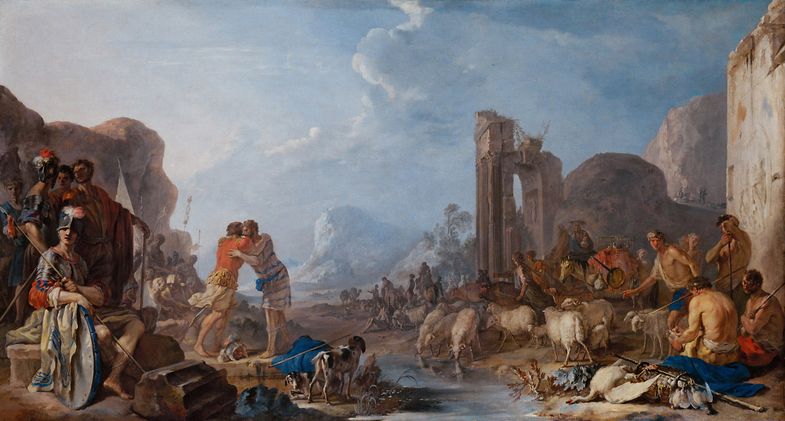Veranstaltung am 08.05.2023 18:00 – 20:00 Uhr
Veranstaltungsort: Bibliotheca Albertina, Vortragssaal
Die Antrittsvorlesung wird auf Englisch gehalten.
Churban (destruction), the Yiddish term for the Holocaust, captures the three-millennia long response to Jewish catastrophe. It reads the Holocaust into the cycle of sin, exile, repentance, and return (to the Land of Israel), established by the Bible as the Jewish people’s destiny, elucidated by the Rabbis in response to the Churban of the Second Temple in Jerusalem (70 CE), and embellished with martyrology in the Middle Ages. Truly the Holocaust breaks with this traditional pattern! It is uniquely recognized as a Jewish catastrophe having universal human significance. It has become definitive of European identity and has made Jewish European history – telling Europe’s history through the Jews – possible.
The lecture uses the biblical story of the rival twins, Jacob and Esau, and its subsequent retelling by Christians and Jews through the ages as lens through which to illuminate changing Jewish responses to catastrophe. Modern emancipation of the Jews, secularization, and nationalization reshaped Jewish responses to pogroms, and the Holocaust and State of Israel expanded the range of responses to Churban immeasurably. Yet our age represents an anomaly, perhaps a fleeting moment of grace in Jewish history. If European acceptance of the Jews and the State of Israel wither away, what Jewish responses to catastrophe might we see emerging? Would Jewish European history still be possible?
- Malachi H. Hacohen is Professor of History and Religious Studies at Trinity College of Arts & Science at Duke University in Durham, North Carolina, director of the Department of Religion and Public Cultures at the Kenan Institute for Ethics and Head of the Center for European Studies. In the summer semester of 2023, he will be conducting his research as a Leibniz Professor at Leipzig University.
